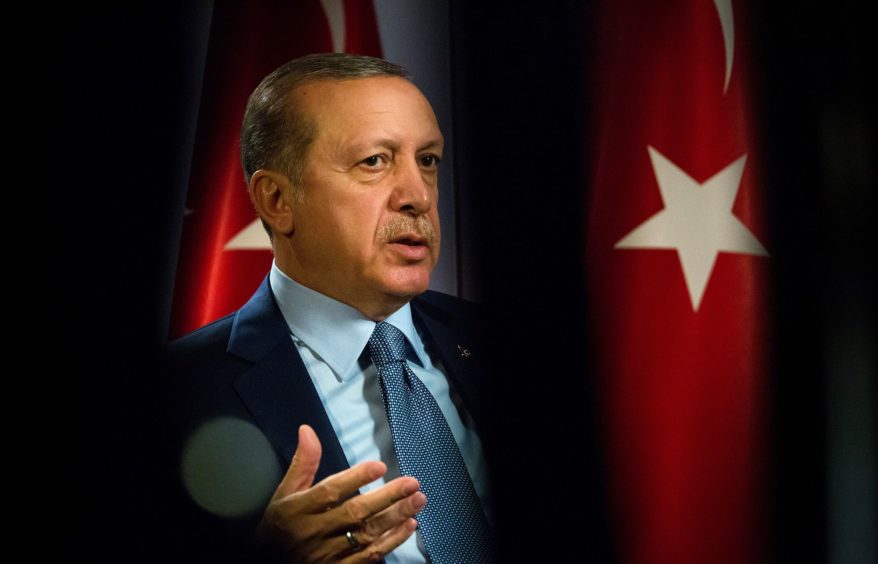
President Recep Tayyip Erdogan has announced the discovery of the largest ever gas find in Turkey off the Black Sea coast.
His announcement comes days after he promised “good news” that would usher in a “new era” for the energy dependent country.
Mr Erdogan said the amount of gas discovered is 320 billion cubic metres, adding that he hopes to start extracting and using the gas by 2023.
If confirmed as recoverable resources, the reserves could ease the country’s dependence on costly energy imports and could ease the financial market jitters that have seen the country’s currency plummet to record lows this summer.
The Turkish drilling ship Fatih had been carrying out exploration operations in the Tuna-1 sector in the western Black Sea for the past month.
The sector is near where Romania has also found gas reserves.
Thomas Purdie, an analyst on Wood Mackenzie’s upstream research team, said: “Even if the official 320 billion cubic metre figure given by President Tayyip Erdogan when he announced the discovery is treated as an estimate of gas in place, this is Turkey’s biggest-ever find – by a wide margin – and one of the largest global discoveries of 2020.
“What’s more, it reaffirms the deepwater Black Sea’s hydrocarbon potential after several disappointing wells in Bulgaria.”
He added: “However, no matter the political and economic importance, reaping the supply rewards will be complex and a 2023 date for bringing the discovery – renamed Sakarya – looks ambitious.
“First and foremost, the discovery will need to be appraised by more wells – to improve understanding of the geology and confirm resource estimates.
“It’s early days, but any future development would cost billions of dollars. Deepwater projects are complex in any environment, but the Black Sea poses additional logistical challenges that must be managed. This is one of the factors that has stalled Romania’s Neptun Deep megaproject, located just 100 kilometres north of the Tuna well.”
The gas discovery comes as tensions between Nato allies Turkey and Greece are running high over oil and gas exploration in disputed waters in the eastern Mediterranean.
Greek and Turkish warships have been shadowing each other after Turkey sent a research ship to look for potential undersea oil and gas deposits.
The Turkish ship is scheduled to search for energy reserves there until August 23.
Separately, Turkey is also at odds with Cyprus over energy exploration around the island.
It has dispatched warship-escorted vessels off Cyprus’s coast to drill for gas, insisting that it is acting to protect its interests and those of Turkish Cypriots related to the area’s natural resources.
The Greek Cypriot government of the ethnically split island has condemned Turkey for encroaching in its waters and economic rights.
The discovery of the natural gas reserve would come as a welcome respite for the country, which is dependent on Iran, Iraq and Russia for its energy and is grappling with economic woes.
Last year, energy imports cost the country 41 billion dollars (£31 billion).
The Turkish lira has tumbled to record lows this month, fuelled by high inflation, a wide current account deficit and the Turkish government’s push for cheap credit to drive an economy that was already fragile before the Covid-19 pandemic hit.
The currency recovered some losses following reports of the discovery of gas deposits.